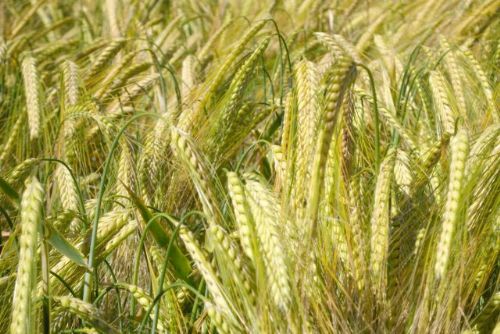
The Biotechnology and Biological Sciences Research Council is announcing nine new crop science projects as part of the Crop Improvement Research Club.
The research is aimed at delivering improvements to the main UK cereal crops - oilseed rape, barley and wheat - so boosting efforts to ensure food security.
Together, the projects represent an investment of over ’4 million by BBSRC, the Scottish Government and 14 companies including plant breeders, farmers and food processors.
The scientific outputs of the projects are shared at regular dissemination events to make sure that the industrial partners can make use of any new advances as soon as possible.
Some of the projects aim to overcome bottlenecks that currently cause inefficiencies in food production. By helping producers to overcome these, the research could help to reduce waste, improve quality and deliver cost savings.
Dr Simon Hook, Chairman of the CIRC Steering Group said ’We’re very excited about the potential of these projects to generate findings of real value to plant breeders, and food growers and processors.
The projects funded in the second call complement those of the first call and hence cover a wide range of topics that will benefit all involved from breeders to consumers."
Dr Celia Caulcott, Director of Innovation and Skills, said ’We cannot hope to meet the enormous food security challenge without harnessing the strengths of both the academic research community and those of industry."
The research currently is directed at a number of specific challenges, including helping plants to use nutrients more efficiently, developing a better understanding of germination and investigating the factors that control pest and disease resistance.
Amongst the projects being funded are an investigation into how we can breed UK wheat to produce better bread, with lower levels of salts, fats and emulsifiers. Another project will look to help improve yields of oilseed rape, an important crop for oil and animal feed, by studying how the plants foster beneficial microorganisms amongst their roots.
Two projects are also hoping to grow better barley crops that are easier to process during brewing and distilling.
This is the second round of investment by the Crop Improvement Research Club complementing ’3 million of projects that were announced in June last year. The six projects funded in the first round of investment are meeting this month in Warwick to discuss the preliminary outcomes of their work.
The nine projects are:
- Dr Anna Avrova, The James Hutton Institute - Fungal effectors as activators of novel resistances in cereals
- Dr Gary Bending, The University of Warwick - Yield improvement of oilseed rape through genetic manipulation of rhizosphere exudation
- Professor Andy Greenland, NIAB - Production of wheat lacking B-type starch granules
- Dr Martin Broadley, University of Nottingham - Delivering low-cost, high-throughput root phenotyping screens for arable crops
- Dr Stephen Hoad, Scottish Agricultural College - Causes and control of grain skinning in malting barley: Phenotyping and genetic analysis
- Professor Peter Shewry, Rothamsted Research - The role of lipids in determining gas bubble retention in wheat dough
- Dr William Thomas,The James Hutton Institute - Improving the processability of malting barley
- Dr Richard Whalley, Rothamsted Research - Phenotyping root function in wheat
- Professor Zoe A Wilson, University of Nottingham - Developing a Cereal Fertility Pipeline (CerFip) for wheat and barley.
